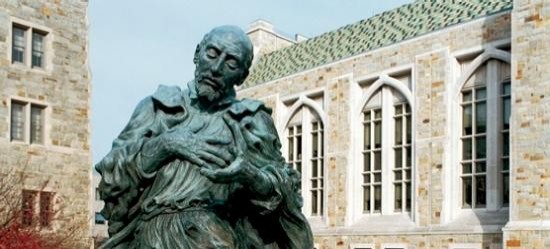Religion and the Liberal Aims of Higher Education

A two-day conference to honor Boston College's sesquicentennial
Date: November 8, 2012
Abstract
What sets religious colleges and universities apart from their secular peers when both are committed to offering a liberal education? This conference brought together fifteen distinguished scholars and writers, including six current or former university presidents, to examine the varied complexions of liberal education and the unique contributions and challenges that religion brings to the endeavor.
The conference opened with an evening keynote address by an eminent historian—now a university president—on the role that religious colleges and universities have played in American society. The next day featured three moderated panels on "historical trajectories" (with distinguished historians and observers of higher education, religion and culture), the "view from the top" (presidents of three religiously affiliated colleges and universities) and "dynamic tensions” (advocates for and critics of the religious dimension of higher education). An afternoon keynote lecture from a former religious studies professor and university president—now president of a foundation committed to strengthening liberal education—took the measure of contemporary higher education. Closing remarks from BC president William Leahy, SJ wraped up the discussion before a public reception following the event.

